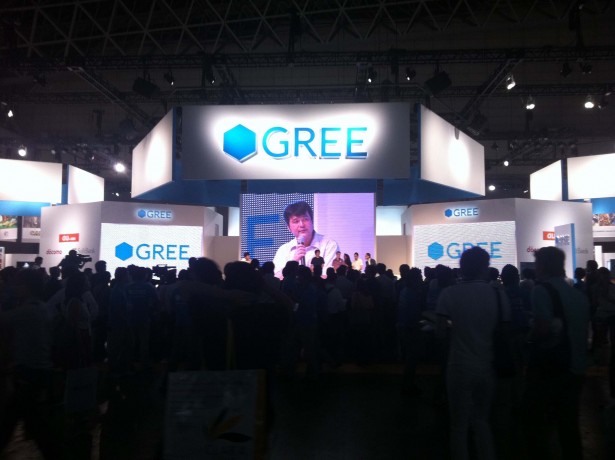GamesBeat: I’ve seen some churn for Gree over time. How do you feel about the level of talent now? The guys who made War of Nation left and started their own studio.
Sheppard: We have lost folks who were part of the original teams. That’s part of any healthy business that’s maturing over time. What’s cool to see – and kind of unique to Gree – is that if I were to walk out the door here, there’s a good cross-section of folks who are still friends with everyone who used to work here. They’re always welcome to come back and visit. There will always be a deep level of respect, and a deep friendship, with all the people who helped make this business the success it is today.
On the flip, to be very honest, there are capabilities we need to build that we don’t have in terms of the organization, that are not good for us to build organically, that we should be pursuing through publishing relationships or strategic M&A. We’ll do that.
GamesBeat: What do you feel about the amount of people it takes to make games now, and how much time? I hear very different things. Machine Zone had 80 people working for 18 months on Game of War. That seemed to pay off. But Supercell still has just 15 people working on Clash of Clans.
Sheppard: This is where I go back to your question about how the industry unfolds from this point forward, with bigger companies in the mix. You’re going to find different companies placing their bets in different ways. I’ve always been a fan of more talented teams as opposed to bigger teams. But a lot of the choices we make along the way in this business dictate the team size you ultimately have to have in order to run a game.
If you rush to market with something very quickly, building something for the very first time, it’s going to take more people to build and to operate once it’s live. You’re making a lot of decisions without putting forethought into the reality that you’re going to be running this game for years, possibly decades. What we’re starting to do now is elevate our planning horizon when we do R&D. That’s prompting us to be more thoughtful about the way we build our tech, the way we build our gameplay, the way we operate our live games.
Our team sizes are growing. Our development durations are going up. My general bias is to break the culture of minimum viable product. I don’t think that’s the right way to win in today’s world. It has not been the way that great games have been built in the past. It’s more a hallmark of the high growth period in the early days of free-to-play in social gaming and mobile gaming. Today it’s much more about building a game that establishes, unequivocally, that it’s something new, special, different, something people should stop playing other games in order to play. For that reason, the game needs to ship and be awesome.
We’re thinking in terms of optimal first releases. What’s the best thing we can bring to market to blow people’s minds within a genre? The definition of that is very genre-specific. You could talk about a strategy game team being quite large. You could talk about an RPG team being quite large. A racing game team could be very small. You can outsource a lot of different kinds of productions. It depends on the genre and the approach.
We also believe — building off our platform heritage in Japan and in the states — in the social aspect of our games. Machine Zone crushed it in that regard. You’ll definitely see us investing in those capabilities over time. When you talk to people here, they’re playing MMOs, whether it’s EVE Online or World of Warcraft. They love the fact that mobile games are inherently social. That’s part of the reason why the games in our portfolio have such durability, why our customers are so loyal to our franchises. You’ll see us step up our game in that regard and do it in a way that’s very smart, that respects our platform heritage.


